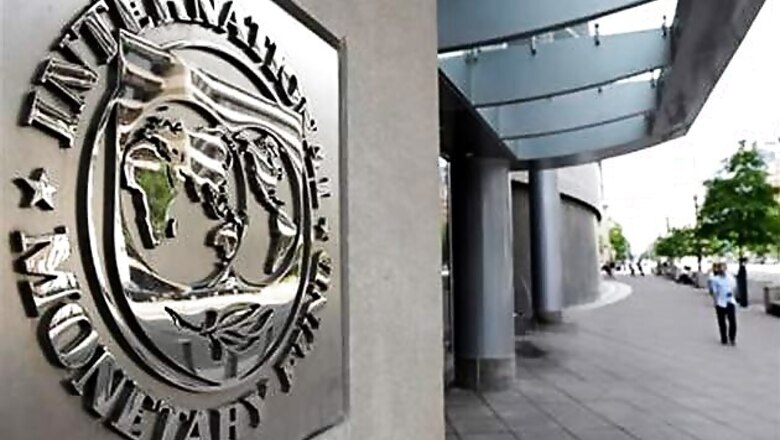
views
Washington: Asserting that inflation is likely to remain stable as the recovery strengthens, the International Monetary Fund has said fears about high inflation should not prevent monetary authorities from pursuing highly accommodative monetary policy. "With long-term inflation expectations firmly anchored, inflation is also likely to remain stable as the recovery strengthens-the dog has been muzzled and is unlikely to bark. Therefore, fears about high inflation should not prevent monetary authorities from pursuing highly accommodative monetary policy," the IMF said in its latest World Economic Outlook (WEO) on Tuesday.
"Any temporary overstimulation of the economy-perhaps stemming from misperception about the size of output gaps-is likely to have only small effects on inflation," the report said adding that preserving central bank independence is key to anchoring inflation expectations and, thus, inflation.
"As long as inflation expectations remain firmly anchored, fears about high inflation should not prevent monetary authorities from pursuing highly accommodative monetary policy," the report said. At the same time, the WEO said moderate inflation could induce complacency-and complacency would be a mistake. "Although consumer price inflation was well contained in the first decade of the 2000s, many economies experienced rampant asset price inflation, most notably in residential housing," it said, adding that these housing bubbles helped destabilise the global financial system and contributed to the subsequent recession.
"Therefore, low consumer price inflation does not necessarily equate with a lack of economic imbalances," the report said. Also the comparison of the US and German experiences in the 1970s should serve as an important reminder about the inflation risks arising from political pressure and limited central bank independence, it said.
"In the wake of the Great Recession, there is political urgency to reduce unemployment, as during the 1970s. In addition, the unprecedented growth in central bank balance sheets has been suggested as a possible vector through which central bank independence could be undermined during the recovery," WEO said. It also said that long-term inflation expectations in advanced economies remain close to targets despite wide variation in actual inflation rates. Even in Japan, expectations remain close to the 1 per cent target announced in February 2012 despite a prolonged period of deflation, the IMF added.




















Comments
0 comment